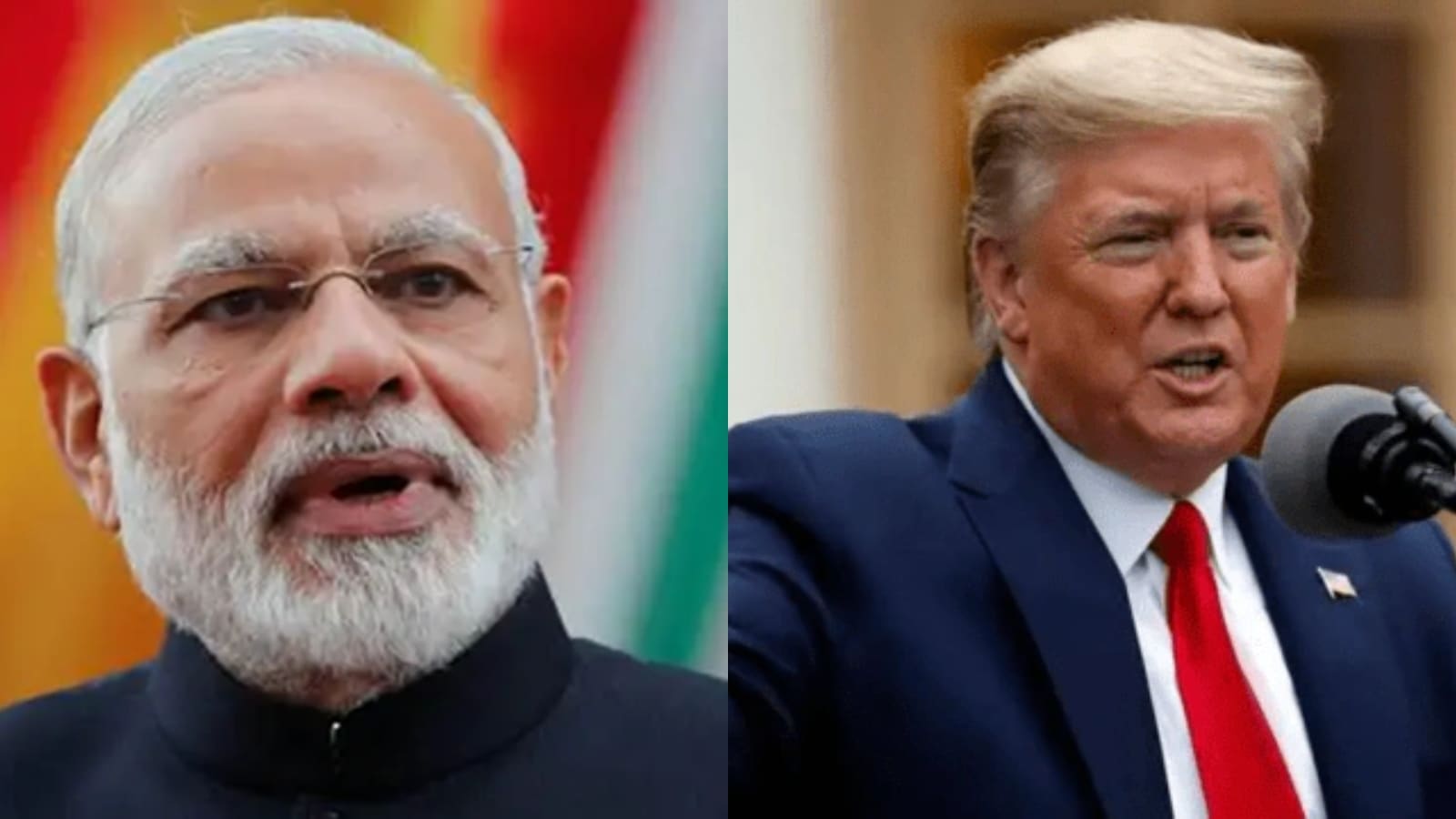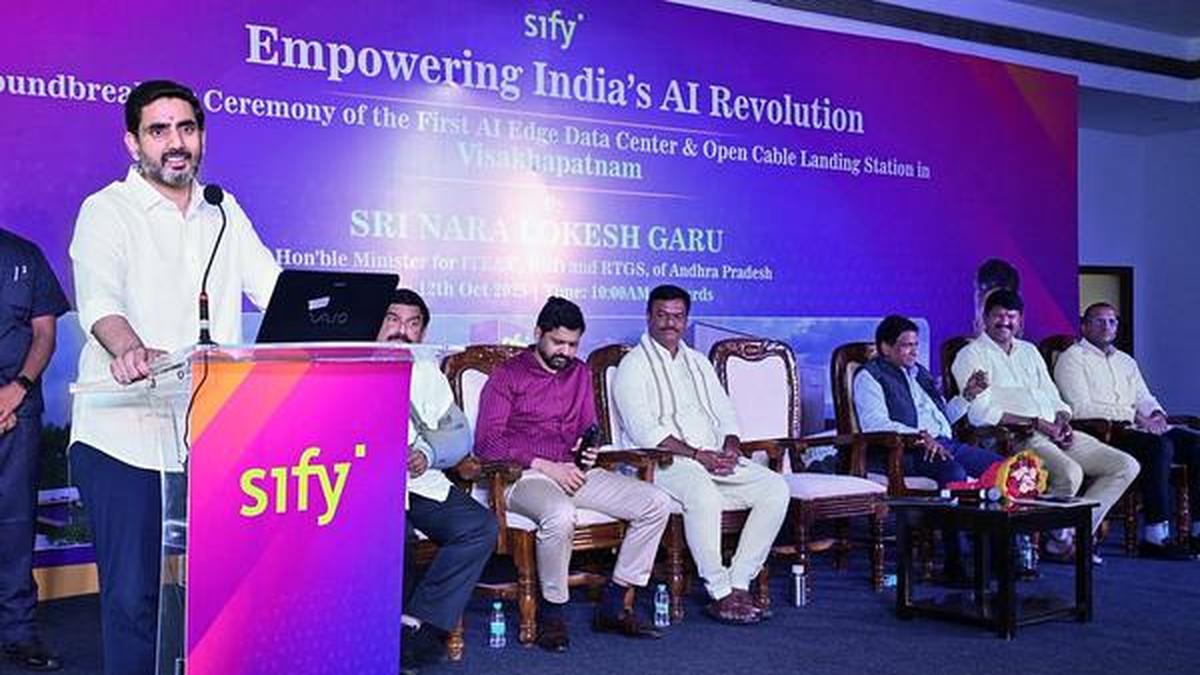Last Updated:October 13, 2025, 13:25 IST
After his dream of Dalit-Muslim unity collapsed, he returned to India, but no political party welcomed him, as many assumed he had stayed in Pakistan

Following his resignation, no Hindu politician has since held a comparable position in Pakistani politics. (News18 Hindi)
In a reflection of Pakistan’s founding principles, Muhammad Ali Jinnah, the nation’s founder, championed the two-nation theory during its creation. This theory sought to protect the rights of Muslims in India while simultaneously promising equal rights for Hindus residing in Pakistan.
In his notable address to Pakistan’s Constituent Assembly on 11 August 1947, Jinnah articulated this vision, stating, “In time, you will see that Hindus will no longer be Hindus, nor will Muslims be Muslims. I do not mean this in a religious sense, for religion is the personal belief of each individual. I mean this in a political sense, where they will all be recognised as citizens of the state."
A report by The Indian Express highlights that Jinnah’s commitment to inclusiveness was more than mere rhetoric. This was evident when he appointed Jogendra Nath Mandal, a Scheduled Caste Hindu from East Pakistan, as the first Law Minister of the country.
Jinnah’s intention was further underscored when he desired Mandal to preside over the parliamentary session in which Jinnah himself was to be sworn in as the first Governor General.
Historian Ahmed Salim, in his book ‘Pakistan and the Aqliyatins’, writes, “Choosing a minority member to preside over the session reflected the progressive outlook of the new state. It was a hopeful sign for the future, particularly as Pakistan itself was shaped by the tireless efforts of the subcontinent’s minorities."
Although Mandal had long advocated for Muslim interests, he eventually supported the Objectives Resolution, which gradually shifted Jinnah’s vision from a secular Pakistan to a Muslim state.
Law Graduate Jogendra Nath Mandal Chose Public Service
Jogendra Nath Mandal, a law graduate, chose a life of public service over practicing law. Born on January 29, 1904, in the Barisal district of the Bengal Presidency (now part of Bangladesh), Mandal hailed from the Namasudra community and showed exceptional academic promise from a young age.
After earning his law degree in 1934, he turned away from a legal career to champion the rights of Dalits, speaking out against the injustices and atrocities they faced. His political journey began in 1937 when he contested the Indian provincial elections as an Independent candidate from the Bakarganj Northeast seat in the Bengal Legislative Assembly. Mandal won his first electoral victory by defeating Saral Kumar Dutta, the district committee president of the Indian National Congress.
Jogendra Nath Mandal Drew Strong Influence From Subhas Chandra Bose
Jogendra Nath Mandal was profoundly influenced by Subhas Chandra Bose. After Bose left the Congress, Mandal joined the Muslim League. He was also a follower of Dr. Babasaheb Ambedkar. In 1946, Mandal played a pivotal role in securing Ambedkar’s victory in the Constituent Assembly elections from Bengal after Ambedkar’s defeat in Bombay. Mandal himself became a member of the Constituent Assembly, contributing significantly to the drafting of the Indian Constitution.
During the 1946 riots, Mandal toured East Bengal, urging Dalits to avoid anti-Muslim violence, recognising that both communities had been exploited by upper-caste Hindus. During this period, he began supporting the Muslim League and developed a close association with Muhammad Ali Jinnah.
Pakistan’s First Law And Labour Minister
In October 1946, Jinnah appointed Mandal as one of the five representatives of the Muslim League in the interim Indian government, where he took charge of the Law Ministry. Following the partition, Mandal moved to Pakistan, becoming a member of the Constituent Assembly and Pakistan’s first Minister of Labour and Law.
However, upon arriving in Karachi, Mandal discovered that Dalits faced severe discrimination, and reports of violence against Hindus deeply troubled him. After Jinnah’s death in September 1948, Mandal’s influence waned, and he repeatedly urged Prime Minister Liaquat Ali Khan to address the problems of Hindus and Dalits, without success.
Return To India In 1950 And Subsequent Political Neglect
In 1950, disillusioned, Mandal resigned from the Pakistani government and returned to India. Mandal was undoubtedly Pakistan’s most prominent and influential Hindu politician.
In his resignation letter, he candidly described Pakistan’s reality: “I have come to the conclusion that Pakistan is not a suitable place for Hindus to live, and the ominous shadow of conversion or extermination has darkened their future."
After his vision of Dalit-Muslim unity was shattered, Mandal returned to India, where no political party welcomed him, as many assumed he had already joined Pakistan. Despite this, he dedicated himself to rehabilitating refugees from East Pakistan (now Bangladesh). Mandal passed away on October 5, 1968, in Bongaon, North 24 Parganas, West Bengal.
Following Mandal’s resignation, no Hindu politician has since held a comparable position in Pakistani politics. However, some prominent figures from Umarkot, about 60 kilometers from the Indian border, still play a role on the national stage.
Umarkot is historically significant as the birthplace of Emperor Akbar, born in Umarkot Fort in 1542, when the Hindu king Rana Prasad provided shelter to his father, Humayun. Today, 52% of Umarkot’s population is Hindu, making it the only district in Pakistan without a Muslim majority.
Rana Chandra Singh’s Political Journey
Rana Chandra Singh emerged as the first prominent Hindu politician from Umarkot. His father, Rana Arjun Singh, chose to stay in their ancestral homeland rather than migrate to India. Chandra Singh became a founding member of the Pakistan People’s Party (PPP) and was elected to the National Assembly seven times between 1977 and 1999. He also served as Minister of Agriculture and Revenue and chaired the National Minority Commission. Despite his electoral and political success, he faced suspicion from Muslim politicians. Retired Pakistani bureaucrat Wasim Altaf recalled, “Whenever the cabinet received a defense-related briefing, Rana Chandra Singh was asked to leave the room."
Formation Of The Pakistan Hindu Party
In 1990, Rana Chandra Singh broke away from the PPP and founded the Pakistan Hindu Party (PHP). He designed the party’s saffron flag, featuring two ancient Hindu symbols—the ‘Om’ and the ‘Trishul’ (trident). This marked a notable effort to establish a Hindu-identified political party in Pakistan. His son, Rana Hamir Singh, initially contested elections under the PHP banner but later joined the PPP.
Rajput Valor And The Oath Tale
In a well-known incident, when a no-confidence motion was raised against then-Prime Minister Benazir Bhutto, Rana Chandra Singh was asked to swear on the holy Gita to prove his loyalty. He responded, “There is no need to swear on the holy Gita; the word of a Rajput is enough." This statement showcased his integrity and deep respect for Rajput traditions.
First Published:
October 13, 2025, 13:25 IST
News india Who Was Pakistan’s First Hindu Minister And Why Did He Return To India Disappointed?
Disclaimer: Comments reflect users’ views, not News18’s. Please keep discussions respectful and constructive. Abusive, defamatory, or illegal comments will be removed. News18 may disable any comment at its discretion. By posting, you agree to our Terms of Use and Privacy Policy.
Read More
.png)
 18 hours ago
17
18 hours ago
17








 English (US) ·
English (US) ·